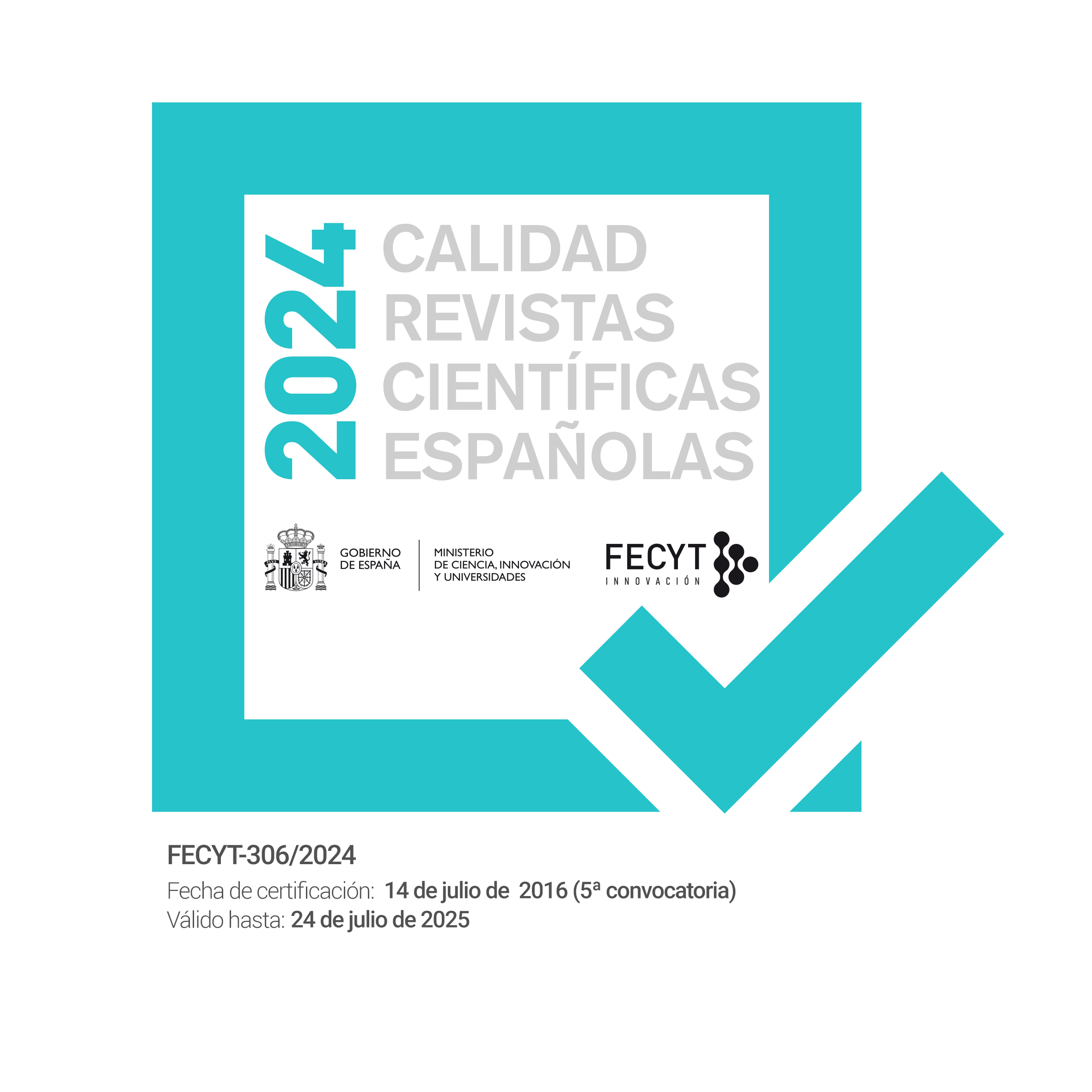El panorama social después de la crisis pandémica en las sociedades del sur de Europa
DOI:
https://doi.org/10.22325/fes/res.2022.127Palabras clave:
Sur de Europa, COVID-19, crisis pandémica, impacto social, grupos vulnerablesResumen
La pandemia del COVID 19 es una de las grandes encrucijadas críticas de nuestro tiempo. Desde las ciencias sociales, y desde la sociología en particular, se están haciendo numerosos esfuerzos para entender cómo la crisis evoluciona y vislumbrar lo que el futuro nos depara. Los impactos han sido muy desiguales en áreas geográficas, sectores de actividad y colectivos sociales.
Este monográfico está dedicado a estudiar los efectos sociales de la pandemia en los países y regiones del sur de Europa, focalizando en el “panorama social” que emerge en torno a una serie de problemas distintivos en nuestro entorno. La hipótesis de fondo de este editorial, y de los trabajos que se presentan, es que las condiciones socioeconómicas, las relaciones sociales y las instituciones moldean el impacto social de la crisis pandémica, al igual que la capacidad de reacción de las políticas públicas y la resiliencia de la ciudadanía.
Las sociedades del sur de Europa son un lugar estratégico para observar estos efectos debido a su peculiar configuración social. Los cinco artículos del monográfico analizan en detalle el desempleo oculto en grupos vulnerables, las emociones expresadas a través de las redes sociales, los efectos y reacciones en trabajos poco formalizados, la salud durante el confinamiento y la capacidad de innovación social en la educación de los niños pequeños. Las contribuciones, algunas de ellas comparativas entre varios países, otras focalizadas en países y regiones, proporcionan algunas claves para entender el significado social de la pandemia y muestran peculiaridades de las sociedades del sur de Europa que merecen ser estudiadas.
Citas
Agamben, G. (2020). L’invenzione di un’epidemia. Quodlibet. https://www.quodlibet.it/giorgio-agamben-l-invenzione-di-un-epidemia
Alon, T., Doepke, M., Olmstead-Rumsey, J., & Tertilt, M. (2020). This time it’s different: The role of women’s employment in a pandemic recession. Centre for Economic Policy Research (CEPR) Discussion Paper, 15149. https://doi.org/10.3386/w27660.
Barroso, M. M. (2017). Crisis and work: An analysis of emergency labour market policies in Portugal, Spain and Greece. Revista Española de Investigaciones Sociológicas, (158), 3-21. https://doi.org/10.5477/cis/reis.158.3
Bazillier, R., Boboc, C. & Calavrezo, O. (2016). Measuring employment vulnerability in Europe. International Labour Review, 155(2), 265-280. https://doi.org/10.1111/j.1564-913X.2014.00019.x
Beck, U. (2016). The Metamorphosis of the World. Polity.
Blaskó, Z., Papadimitriou, E., & Manca, A. R. (2020). How will the COVID-19 crisis affect existing gender divides in Europe?. JRC Science for Policy Report, EUR 30181. https://doi.org/10.2760/37511
Borgna, P. (Ed.) (2022). Monographic session on COVID -19. Indiscipline. Rivista di Scienze Sociali, 2. http://riviste.morlacchilibri.com/index.php/indiscipline/issue/view/7/7
Burawoy, M. (2005). For Public Sociology, American Sociological Review 70(1), 4-28.
Calavita, K. (2005) Immigrants at the margins: Law, Race and Exclusion in Southern Europe. Cambridge: Cambridge University Press.
Casquilho-Martins, I., & Belchior-Rocha, H. (2022). Responses to COVID-19 Social and Economic Impacts: A Comparative Analysis in Southern European Countries. Social Sciences, 11(2), 36. https://doi.org/10.3390/socsci11020036
Castles, F., & Ferrera, M. (1996). Home Ownership and the Welfare State: Is Southern Europe Different?. South European Society and Politics, 1(2), 163-184.
Canadian Broadcasting Corporation [CBC] (2020). Covidiots? Quarantinis? Linguist explains how COVID-19 has infected our language. https://www.cbc.ca/radio/thecurrent/the-current-for-april-22-2020-1.5540906/covidiots-quarantinis-linguist-explains-how-covid-19-has-infected-our-language-1.5540914
Chantzaras, A., & Yfantopoulos, J. (2022). The impact of COVID-19 pandemic and its associations with government responses in Europe. Region & Periphery, 13(13), 23-40. https://ejournals.epublishing.ekt.gr/index.php/periphery/article/view/30758
Consoli, M. T. (Ed.). (2015). Migration towards southern Europe. The case of Sicily and the separated Children. Franco Angeli.
Davis, M. (2020). The Monster Enters. New Left Review, 122, 7-14.
D’Eramo, M (2020). The Philosopher’s Epidemic. New Left Review, 122, 23-28.
Entrena-Durán, F., Soriano-Miras, R. & Duque-Calvache, R. (2020). (Eds). Social Problems in Southern Europe. A comparative assessment. Edward Elgar.
Esping-Andersen, G. (1990). The Three Worlds of Welfare Capitalism. Polity Press.
European Commission (2022a). Cohesion in Europe towards 2050: Eighth report on economic, social and territorial cohesion. Publications Office of the European Union. http://ec.europa.eu/regional_policy/en/information/cohesion-report/
European Commission (2022b). Employment and Social Developments in Europe 2022. Directorate-General for Employment, Social Affairs and Inclusion. Publications Office of the European Union.
Flaquer, L. (2004). La articulación entre familia y el Estado de bienestar en los países de la Europa del sur. Papers, 73, 27-58.
Gaitán, L., Pechtelidis Y., Tomás, C., & Fernandes, N. (Eds). (2020). Children's Lives in Southern Europe. Contemporary Challenges and Risks. Edward Elgar.
Garofalo, A., Castellano, R., Punzo, G., & Musella, G. (2018). Skills and labour incomes: How unequal is Italy as part of the Southern European countries?. Quality and Quantity, 52, 1471-1500. https://doi.org/10.1007/s11135-017-0531-6
Hanafi, S. (2020). Toward a post COVID-19 Sociology. Revue du MAUSS. https://www.journaldumauss.net/./?Toward-a-post-COVID-19-Sociology
Harari, Y. N. (2020). The world after coronavirus. Financial Times. https://www.ft.com/content/19d90308-6858-11ea-a3c9-1fe6fedcca75
Harvey, D. (2020). Anti-Capitalist Politics in the Time of COVID-19. http://davidharvey.org/2020/03/anti-capitalist-politics-in-the-time-of-covid-19/.
ISTAT (2022). Rapporto Annuale 2022, La situazione del Paese, Roma Istat, 2022. https://www.quotidianosanita.it/allegati/allegato1657273256.pdf.
Jenson, J., & Mérand, F. (2010). Sociology, institutionalism and the European Union, Comparative European Politics, 8(1), 74-92.
Jipson, J., & Jitheesh, P. M. (2020). The Pandemic Has Only Exposed the Suicidal Tendencies of Capitalism: Noam Chomsky. The Wire. https://thewire.in/world/noam-chomsky-interview-covid-19-pandemic-capitalism-neoliberalism-us-hegemony.
Kafka, F. (2016 [1915]). The Metamorphosis and Other Stories. Broadview Press.
Karakioulafi, C. (2022). The COVID-19 pandemic as a catalyst of art workers mobilisation and unionisation: the case of Greek actors. Revista Española de Sociología, 31(4), a129. https://doi.org/10.22325/fes/res.2022.129
Kasimis, C., & Papadopoulos, A. G. (2005). The Multifunctional Role of Migrants in Greek Countryside: Implications for Rural Economy and Society. Journal of Ethnic and Migration Studies, 31(1), 99-127.
Katrougalos, G., & Lazaridis, G. (2003). The Southern Welfare States in the European Context. In G. Katrougalos, & G. Lazaridis (Eds.), Southern European Welfare States. Palgrave Macmillan.
King, R. (2000). Southern Europe in the Changing Global Map of Migration. In R. King, G. Lazaridis, & C. Tsardanidis (Eds.), Eldorado or Fortress? Migration in Southern Europe (pp. 3-26) Basingstoke: Macmillan Press.
La Rocca, G., & Greco, F. (2022). #Covid-19: A hashtag for examining reactions towards Europe in times of crisis. An analysis of tweets in Italian, Spanish, and French. Revista Española de Sociología, 31(4), a128. https://doi.org/10.22325/fes/res.2022.128
Latour, B. (2021). After Lockdown: A Metamorphosis. Polity.
Lehtinen, M., & Brunila, T. (2021). A Political Ontology of the Pandemic: Sovereign Power and the Management of Affects through the Political Ontology of War. Frontiers of Political Science, 3, 674076. https://doi.org/10.3389/fpos.2021.674076.
Lupton, D. (2022). COVID Societies. Theorising the Coronavirus Crisis. Routledge.
Maestripieri, L., & Gallego, R. (2022). The impact of the COVID-19 pandemic on society in southern Europe: the case of social innovation in the care of early childhood in Barcelona. Revista Española de Sociología, 31(4), a131. https://doi.org/10.22325/fes/res.2022.131
Matthewman, S., & Huppatz, K. (2020). A sociology of Covid-19. Journal of Sociology, 56(4), 675-683. https://doi.org/10.1177/1440783320939416.
Matthewman, S. (Ed.). (2022). A Research Agenda for COVID-19 and Society. Edward Elgar.
McAuliffe, M., & Triandafyllidou, A. (Eds). (2021). World Migration Report 2022. International Organization for Migration (IOM).
Meisner, B. A. (2021). Are you OK, Boomer? Intensification of ageism and intergenerational tensions on social media amid COVID-19. Leisure Sciences, 43(1-2), 56-61.
Messandra, S. (2020). Politics of Struggles in the time of pandemic. https://www.versobooks.com/blogs/4598-politics-of-struggles-in-the-time-of-pandemic.
Moreira, A., Léon, M., Coda Moscarola, F. & Roumpakis, A. (2021). In the eye of the storm…again! Social policy responses to COVID19 in Southern Europe. Social Policy Administration, 55(2), 339-357. https://doi.org/10.1111/spol.12681.
Moreno, L. (2006). The model of social protection in Southern Europe: Enduring characteristics? Revue Française des Affaires Socials, 1, 73-95.
Orrell, D. (2012). Behavioural Economics: Psychology, neuroscience, and the human side of economics. Icon Books Ltd.
Papadopoulos, A. G., & Fratsea, L. M. (2019). Migration and Refugee Flows in Greece in the Post-Crisis Period: Exploring Different Claims for Socio-Spatial Justice. Autonomie Locali e Servizi Sociali, 401-423. https://doi.org/10.1447/96701
Papadopoulos, A. G., & Fratsea, L. M. (2021). Migrant and Refugee Impact on Wellbeing in Rural Areas: Reframing Rural Development Challenges in Greece. Frontiers in Sociology, 6, 592750. https://doi.org/10.3389/fsoc.2021.592750
Papadopoulos, A. G., Fratsea, L. M., & Mavrommatis. G. (2018). Governing migrant labour in an intensive agricultural area in Greece: Focusing on precarity, political mobilization and migrant agency at Manolada’s fields. Journal of Rural Studies, 64, 200-209. https:// doi.org/10.1016/j.jrurstud.2018.03.013
Roy, A. (2020). The pandemic is a portal. Financial Times. https://www.ft.com/content/10d8f5e8-74eb-11ea-95fe-fcd274e920ca?utm_source=Tricontinental+subscribers+single+list&utm_campaign=c2330aefdb-EMAIL_CAMPAIGN_2020_04_08_05_44&utm_medium=email&utm_term=0_bb06a786c7-c2330aefdb-190590353.
Salido, O., & Massó, M. (Eds). (2021). Sociología en tiempos de Pandemia. Impactos y desafíos sociales de la crisis del COVID-19. Marcial Pons Editores - Colección Investigación Sociológica FES.
Samadar, R. (2020). Introduction: Borders of an Epidemic. In R. Samadar (ed.), Borders of an Epidemic: Covid-19 and Migrant Workers (pp- 1-30). Calcutta Research Group.
Suárez-Grimalt, L., Coco-Prieto, A., & Simó-Solsona, M. (2022). Double invisibility: the effects of hidden unemployment on vulnerable populations in southern European countries during the COVID-19 pandemic. Revista Española de Sociología, 31(4), a132. https://doi.org/10.22325/fes/res.2022.132
Sutin, A. R., Stephan, Y., Luchetti, M., Aschwanden, D., Lee, J. H., Sesker, A. A., & Terracciano, A. (2022). Differential personality change earlier and later in the coronavirus pandemic in a longitudinal sample of adults in the United States. PLoS ONE, 17(9), e0274542. https://doi.org/10.1371/journal. pone.0274542.
Taggart Murphy, R. (2020). East and West: Geocultures and the Coronavirus. New Left Review, (122), 58-64.
The Lancet Commission (2022). The Lancet Commission on lessons for the future from the COVID-19 Pandemic. The Lancet, 400(10359), 1224-1280. https://doi.org/10.1016/S0140-6736(22)01585-9
Torrado, J. M., Duque-Calvache, R., & Mesa-Pedrazas, Ángela. (2022). The COVID-19 lockdown: effects of material conditions and social context on self-reported health during confinement. Revista Española de Sociología, 31(4), a130. https://doi.org/10.22325/fes/res.2022.130
Van den Berge, L. (2020). Biopolitics and the Coronavirus: Foucault, Agamben, Žižek. Netherlands Journal of Legal Philosophy, 49(1), 3-6.
Wendling, T. (2010). Us et abus de la notion de fait social total: Turbulences critiques. Revue du MAUSS, 36(2), 87-99. https://doi.org/10.3917/rdm.036.0087
Zinn, J. O. (2021a). Introduction: Towards a sociology of pandemics. Current Sociology Monograph, 69(4), 435-452. https://doi.org/10.1177/00113921211020771.
Zinn, J. O. (2021b). Conclusions: Towards a sociology of pandemics and beyond. Current Sociology Monographs, 69(4), 603-617. https://doi.org/10.1177/00113921211023518.
Žižek, S. (2020). Pandemic! Covid-19 Shakes the World. OR Books.
Descargas
Publicado
Cómo citar
Número
Sección
Licencia
Derechos de autor 2022 Teresa Consoli, Manuel Fernández-Esquinas, Apostolos G. Papadopoulos

Esta obra está bajo una licencia internacional Creative Commons Atribución-NoComercial 4.0.
Todas las publicaciones de la Revista Española de Sociología se realizarán bajo una licencia abierta Creative Commons de Reconocimiento 4.0 Internacional (CC BY 4.0). Dicha licencia establece que los autores son los poseedores de los derechos de propiedad intelectual de sus trabajos, que pueden redistribuirse a cambio de un reconocimiento adecuado. Para más información de la licencia Creative Commons, consultar aquí.
Una vez aceptado un artículo para su publicación, la Revista Española de Sociología solicitará al denominado "autor para la correspondencia" la aceptación de una licencia obligatoria Creative Commons incluida en un acuerdo o contrato de publicación.




